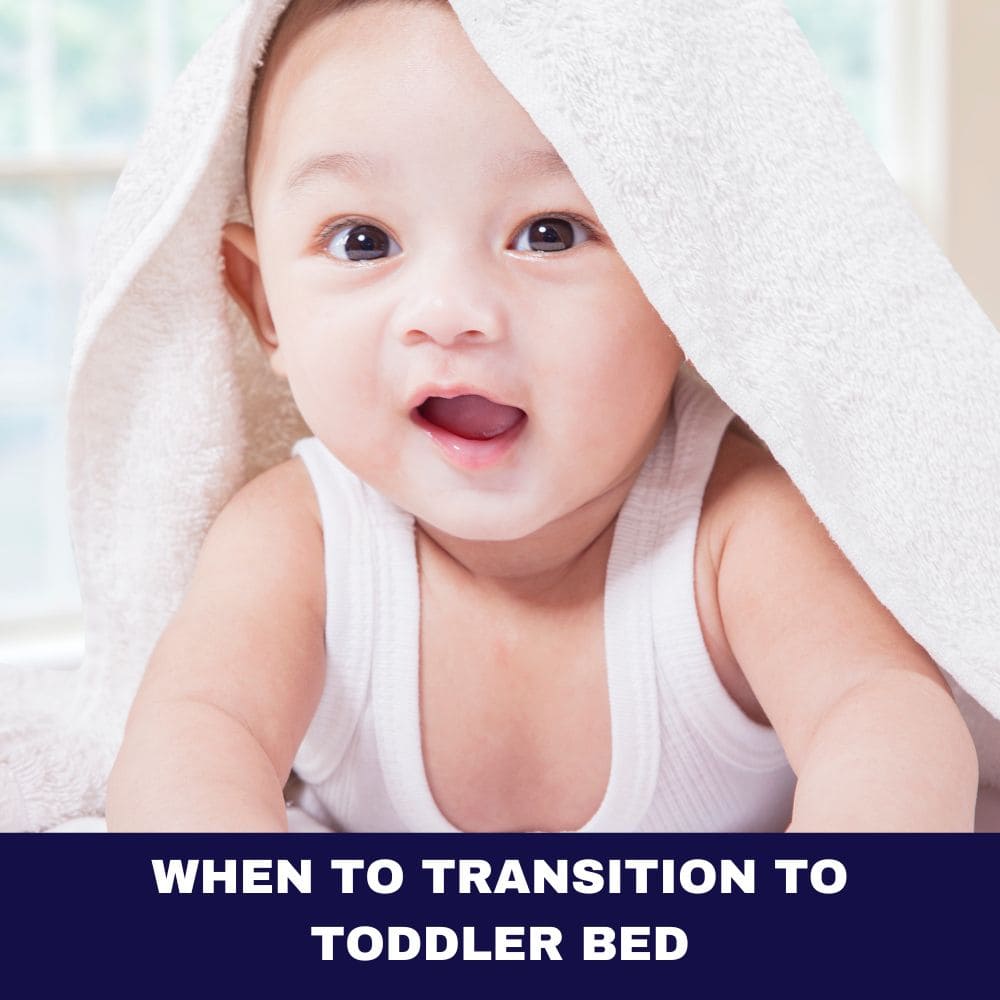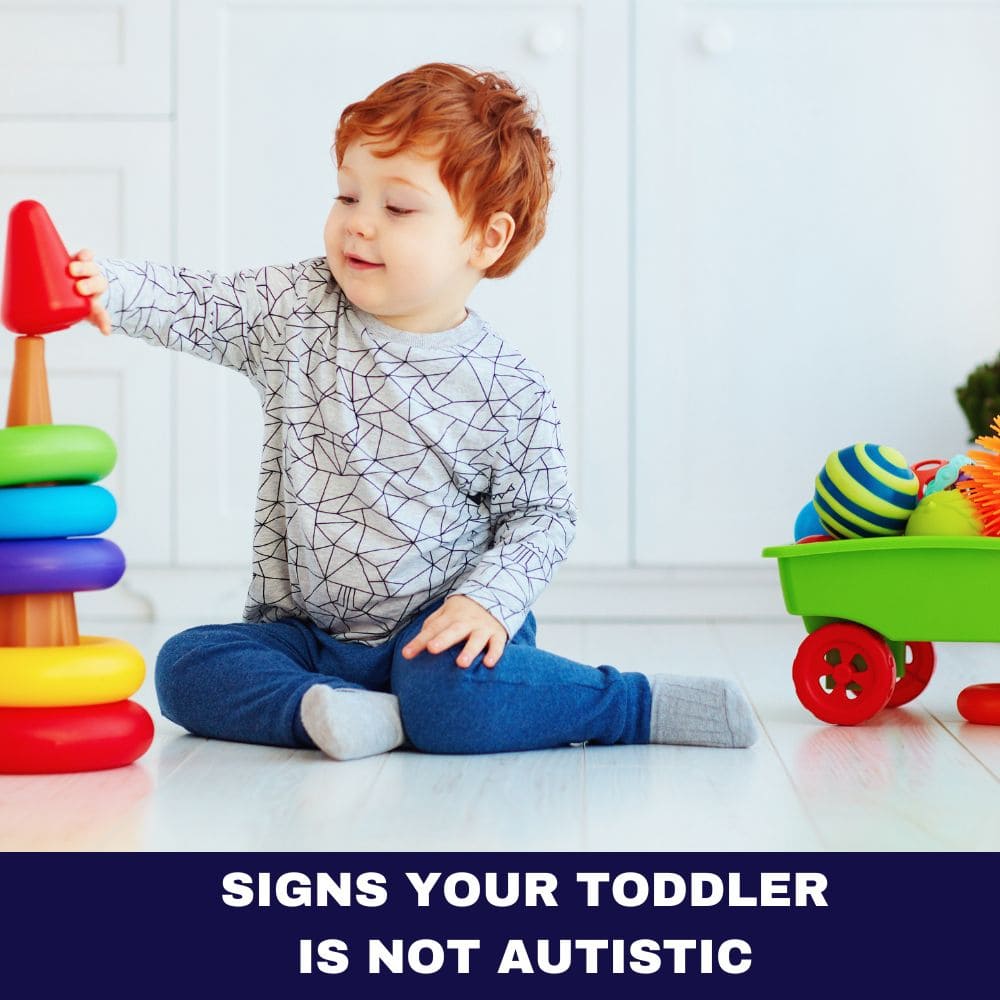As a parent, few things are more frustrating than a baby who just won’t go to sleep! You’ve tried everything – rocking, swaddling, white noise – but your little one continues to fight bedtime with all their might. However, emerging research suggests that babies who resist sleep may actually have an intellectual edge. Read on as we explore the connections between sleep and cognitive development and tips to support your sleep fighter.

Introduction
We all know babies need a lot of sleep. Newborns sleep 16-18 hours per day, gradually decreasing to 14-15 hours by 6 months old. But sometimes, our infant has other plans! You lay them down drowsy but awake, but they cry, fuss, and insist on staying up. Why does your bundle of joy fight the urge to sleep? As it turns out, this phenomenon is very common and even linked to brain development. While frustrating, sleep resistance offers insights into your baby’s mind.
The Science of Infant Sleep
To understand why babies fight sleep, it helps to dive into the science behind infant sleep cycles and architecture. There are key differences from adult sleep that explain why babies transition in and out of sleep frequently and resist settling:
- More REM sleep – Newborns spend about 50% of sleep time in REM (rapid eye movement), compared to 20-25% for adults. This is critical for brain development. Babies cycle in and out of REM more frequently with shorter sleep cycles.
- Shorter sleep cycles – Newborns’ sleep cycles last around 50-60 minutes, compared to 90-120 minutes in adults. This contributes to frequent night wakings as they transition between sleep stages.
- Immature circadian rhythms – Babies don’t develop a circadian sleep-wake cycle until 3-6 months old. Until then, their sleep is distributed evenly around the clock according to individual needs. This irregularity can disrupt sleep.
- Brain development – Around 6-9 months, significant brain growth happens. Greater awareness, mobility, separation anxiety and new cognitive skills can all impair sleep. Light sleep stages allow more brain stimulation.
- Sleep stage transitions – Infants cycle between active/quiet (non-REM) and REM sleep. They spend more time in active sleep with frequent awakenings compared to adults. Night wakings occur as they transition between sleep stages.
Understanding the unique architecture and maturation of infant sleep explains normal sleep disruptions. As their brain develops and circadian rhythms emerge in the first year, sleep resistance gradually resolves and consolidates.
Defining Sleep Resistance in Babies
Sleep resistance refers to babies who have trouble falling asleep or frequently waking in the night after initially going down. They may cry, call out, or find ways to delay sleep despite appearing tired. Some resistance is normal in the first 6-9 months as babies learn to self-soothe and consolidate sleep cycles. However excessive or prolonged resistance can have negative effects. Understanding the difference is key.
Signs of sleep resistance versus normal tired cues include:
- Frequent short naps (under 45 mins)
- Second winds and sudden energy before bedtime
- Crying or calling out at bedtime
- Difficulty settling without assistance
- Delay tactics like asking for more snacks/water
Occasional resistance is expected. But if it persists beyond 6-9 months or severely impacts daytime mood and learning, further steps may be needed.
Exploring the Concept of Babies Fighting Sleep
We have all experienced the frustration of a baby who fights to go to bed! Despite yawning, rubbing eyes, and other tired signs, they protest and resist sleep. You may feel confused, concerned, and overwhelmed. Why won’t your baby just go to sleep?!
It is understandably stressful caring for an overtired, fussy child who skipped a nap or was up all night. However, emerging research suggests that sleep resistance can indicate an active, curious mind. Reframing the struggle as a positive sign of development rather than a behavior problem can alleviate frustration.

The Cognitive Development Connection
Evidence suggests a significant link between cognitive development and infant sleep patterns. Consider what is happening in your baby’s rapidly growing brain:
- Acquiring new motor, language, and social skills
- Establishing neural connections and greater brain activity
- Intense curiosity about their changing world
- Fear of missing out on surroundings and people
These developmental changes can all manifest in sleep resistance. Your baby wants to practice newfound abilities and participate in family activities! Their busy brain is still learning to settle at the end of each stimulating day. Sleep resistance may simply signal an engaged, developing mind.
| Age | Recommended Total Sleep Per 24 Hours |
|---|---|
| Newborn (0-2 months) | 14-17 hours |
| Infant (3-11 months) | 12-15 hours |
| Toddler (1-2 years) | 11-14 hours |
| Preschooler (3-5 years) | 10-13 hours |
Research on Sleep Resistance and Intelligence
Several studies reveal connections between restless sleepers and intelligence:
- A 2020 study from the University of Warwick found that infants who fight sleep tend to have higher IQs later in childhood. Researchers evaluated sleep-resistant babies at 2-3 years old and found they scored higher on cognitive assessments.
- Researchers at the University of York found a similar link between sleep resistance at ages 2-3 and higher intelligence and positive behaviors at age 6. Sleep fighters were more advanced socially, emotionally, and academically.
- Scientists suggest sleep resistance allows infants more waking hours to learn and develop new skills. The extra night wakings provide brain stimulation.
While more research is needed, these early findings hint at the intellectual upsides of sleep resistance. The brain staying engaged day and night may convey cognitive advantages.
Common Reasons Behind Sleep Resistance
Why does your bundle of joy resist sleep? There are several possible explanations:
Overtiredness – Paradoxically, an overly tired baby has trouble sleeping. Allowing proper daytime naps avoids this. Watch for cues like rubbing eyes, fussiness and yawning.
Stimulating Environment – Loud noises, bright lights, excessive activity and inconsistent routines can overstimulate the baby and disrupt sleep cycles. Aim for consistency and peaceful settings.
Growth and Development – Major leaps in development like learning to roll, sit or walk can interfere with sleep. Mental growth also increases brain activity.
FOMO – Your curious infant doesn’t want to miss out on any action! They fight for sleep to stay engaged in their surroundings.
Anxiety – Major schedule changes, sleep associations or stress factors can cause baby separation anxiety that resists sleep. Offer added comfort and security.
Think through your baby’s activities, environment and recent changes to identify potential sleep disruptors. Addressing these issues can help reduce resistance. But some resistance is biologically normal.
| Sleep Disruptor | Management Strategies |
|---|---|
| Overtiredness | – Watch for tired signs and start bedtime early – Adjust nap schedule/duration |
| Physical discomfort | – Check for underlying illness/teething – Use sleep-friendly clothing/bedding |
| Environmental factors | – Use white noise machine – Control light/temperature |
| Anxiety | – Consistent, relaxing bedtime routine – Transitional object |
| Sleep associations | – Put baby down drowsy but awake – Avoid feeding to sleep |
Insights into Brain Activity and Curiosity
Two key factors explain sleep resistance in babies: elevated brain activity and curiosity. Around 6-9 months, significant changes are happening in your baby’s developing mind:
Elevated Brain Activity
Your baby’s brain is forming new neural connections at a rapid pace. This increased activity during light sleep cycles often prevents deep sleep. Their busy brain is still learning to settle! Night wakings allow more awake time to absorb new information.
Growing Curiosity
Around 6 months, separation anxiety sets in, and your baby doesn’t want to miss any action! They are also eager to practice new skills like rolling over, sitting or crawling. It’s natural for your curious cutie to resist sleep in favor of play and interaction.
Understanding these biological drivers can reframe perceptions of sleep resistance. Your baby isn’t giving you a hard time – they are just growing their mind! With your support, they will learn to balance activity and rest.

Debunking the Myth
Does my baby resist sleep because they are so smart? While several studies reveal links between active sleepers and cognitive abilities, more research is needed. Sleep resistance alone does not determine intelligence. However, an infant’s drive to stay mentally engaged day and night does indicate a growing brain.
Think of sleep resistance as a sign your baby is alert, curious and developing well – not necessarily smarter. Support their growth by meeting needs and practicing healthy sleep habits. Thriving comes from the balance between stimulation and rest.
The Role of a Suitable Sleep Sack
A well-designed sleep sack can promote safety and healthy sleep for resistant babies. Key features include:
- Lightweight material to prevent overheating
- Shoulder snaps for proper fit around the neck
- Arms-only design or hand sleeves for self-soothing movements
- Firm bottom design that prevents sliding or rolling during sleep
- Dual-zip option to attend to diaper changes without full removal
The ideal sleep sack keeps your baby cozy and contained, allowing them to focus on sleeping versus escaping! This facilitates longer, safer stretches of slumber. Follow size guidelines and stop swaddling when your baby can roll over.
Practical Tips for Dealing with Sleep Resistance
Caring for a baby who fights sleep is challenging. Try these tips to help your resistant sleeper:
Watch for Sleepy Signals – Learn your baby’s tired signs like yawning, eye rubbing, and fussiness. Start bedtime prep early before they become overtired.
Wind Down Together – Make the last hour before bedtime calm and consistent. Turn lights low, bathe, massage, read books and play soft music.
Allow Some “Chat” Time – If your baby calls out or cries at bedtime, briefly respond and reassure them you are there. A few minutes of this builds security and self-soothing skills.
Experiment with Nap Timing – Try spacing naps 3-4 hours apart during daytime. Watch how nap length impacts night sleep. Find the ideal nap schedule.
Remove Stimulation – Eliminate loud background noise, screens and excessive activity in the hours before bedtime and during naps.
Add Daytime Play – Ensure your baby gets sufficient lively play and interaction during daytime hours to stimulate their mind and exercise their body.
Make bedtime and nap routines peaceful and consistent. Attend to your baby’s needs while encouraging them to self-settle using soothing techniques.
Strategies for a Conducive Sleep Environment
Creating an optimal sleep environment can minimize resistance. Important factors include:
Peaceful Setting – Put your baby to bed in a quiet, dim room away from noise and commotion. Try a white noise machine to block disruptive sounds.
Comfortable Temperature – Keep the room around 65-70°F. Don’t overbundle. Try breathable, lightweight sleep clothing.
Soothing Lighting – Use blackout curtains or an eye mask to block light. Soft night lights are fine. Keep lights low in the hours before bed.
Consistent Routine – Put your baby down to sleep and wake them at consistent times each day and establish a predictable, relaxed bedtime routine.
Safe Space – Ensure the crib and bedding are 100% safe. Never add pillows, blankets or soft toys that present suffocation risks.
The right sleep setting removes distractions so your baby can relax and drift off naturally. Maintain this environment for naps and nighttime.
Creating Positive Sleep Associations
In addition to the sleep environment, establishing healthy sleep associations helps minimize resistance:
- Put your baby to bed drowsy but awake to learn self-settling rather than relying on external sleep props.
- Develop a soothing bedtime routine such as bath, massage, singing, and reading to signal winding down for sleep. Repeat for naps.
- Introduce a special blanket or stuffed animal for your baby to associate with sleep time.
- Avoid nursing or feeding your baby fully to sleep. Feed earlier in the routine, then complete the last feeding 30 minutes before bedtime.
- When your baby awakens in the night, allow a few minutes for self-soothing before responding. Attend to needs gently & concisely.
- Manage stimulation, noise and lighting strategically to differentiate between night sleep and day wake times.
Reinforcing positive associations teaches your baby how to self-soothe and sets the foundation for healthy lifelong sleep habits. Have patience using these techniques consistently.
Developmental Milestones Disrupting Sleep
In addition to biological factors, major developmental milestones often provoke sleep regressions:
4 Months – Growth spurts lead to increased hunger and disrupted sleep cycles. Circadian rhythms start developing, which can impair sleep.
6-9 Months – Separation anxiety emerges, along with major brain development. Increased mobility also causes distraction and overstimulation.
8-10 Months – Learning new skills like standing/walking and developing object permanence interferes with sleep. Mental stimulation is high.
12 Months – Dropping to one nap coincides with increased independence and exploration. Night sleep may suffer as naps decrease.
Understanding what is happening developmentally helps parents navigate sleep regressions patiently. Offer extra comfort and consistency during these phases, which pass as your baby masters new skills.
| Age | Milestone | Typical Sleep Disruptions |
|---|---|---|
| 4 months | Growth spurt, emerging circadian rhythms | Increased night wakings, difficult self-settling |
| 6-9 months | Separation anxiety, mobility development | Bedtime resistance, difficulty self-soothing |
| 8-10 months | Learning to stand/walk, object permanence | Decreased nap quality/duration, night wakings |
| 12 months | Dropping to one nap, increased independence | Resisting nap schedule change, night sleep suffers |
Expert Opinions and Insights
Perspectives from pediatricians, sleep experts, and child psychologists provide deeper insight into baby sleep resistance:
Dr. Sasha Howard, Pediatrician: “Sleep resistance is usually temporary and tied to developmental leaps. Support healthy habits, but don’t worry about ‘training’ a young baby to sleep through prematurely. Their sleep needs and cycles are still maturing.”
Sarah Wilson, Infant Sleep Consultant: “I guide parents through age-appropriate techniques based on baby’s needs. The key is recognizing natural tired signs so sleep doesn’t become a battle. Consistency and environmental factors also influence sleep success.”
Dr. Alicia Jones, Child Psychologist: “Pressuring babies to sleep independently too early can backfire and exacerbate resistance. Nurturing attachment and responding to needs builds trust and self-soothing skills over time.”
The consensus is that sleep resistance is complex but often temporary. With loving support and consistency, your baby will develop healthy sleep-wake cycles.
Exploring the Complexities of Sleep Behavior
Your baby’s sleep behavior is influenced by various biological and environmental factors. For example:
Sleep Regressions – Periods of disrupted sleep around 4 months, 8 months, 18 months, etc as babies master new skills. These pass naturally.
Physical Factors – Teething, illness, reflux, food sensitivities and developmental leaps can interfere with sleep.
Soothing Associations – Rocking, nursing, co-sleeping or other props help babies sleep but become sleep crutches.
Separation Anxiety – Around 6-9 months, babies resist being away from caregivers, especially at night. Adding a comfort object can help.
Circadian Rhythm – An irregular nap schedule or too much daytime sleep reduces the night sleep drive. Aim for age-appropriate awake times.
The intricacies around infant sleep are vast! Have compassion for behaviors driven by your baby’s stage of development and care needs. Consistency helps ensure restful nights.
Supporting Healthy Sleep Habits
Emphasizing healthy sleep habits from infancy is beneficial:
- Maintain age-appropriate awake times during the daytime to build a biologically aligned sleep drive
- Cap daytime sleep as the baby matures to ensure sufficient night sleep
- Make the sleep environment consistently comfortable – controlled temperature, limited noise/light etc.
- Establish a relaxing pre-bed routine like baths, massage, books, and lullabies
- Encourage self-soothing by allowing your baby time to settle independently with limited sleep props
- Respond lovingly but concisely to night wakings – meet needs but don’t overstimulate
- Reinforce the difference between day (lively) and night (restful)
Support your baby’s needs while emphasizing healthy sleep patterns tailored to their age. Be flexible – biologically normal sleep resistance will pass! With time, they will become an excellent sleeper.
Conclusion
In summary, sleep resistance is common in infants and often stems from normal developmental factors like brain growth and curiosity. Though frustrating, viewing it positively as a sign of an engaged mind can help. While links to intelligence exist, more research is needed. With loving support, your resistant sleeper will learn healthy sleep-wake cycles. Maintain perspective and consistency through challenging phases that ultimately help strengthen your bond. Sleep-disrupted nights won’t last forever!
FAQ – Babies Who Fight Sleep Are Smart
At what age is sleep resistance concerning?
Some resistance is normal up to 6-9 months. If it persists significantly beyond that or severely impacts mood and development, seek pediatric guidance.
Should I let my baby cry it out?
Not for young infants. Responding to needs and allowing some “chat” builds trust. Gradually support self-soothing skills.
How much daytime sleep should my baby get?
Newborns need ~15 hours total sleep over 24 hours. Decrease daytime sleep as they age but adjust based on night sleep quality.
Could my baby’s sleep problems indicate a medical issue?
Persistent resistance, especially accompanied by daytime symptoms, warrants a pediatrician checkup to rule out underlying issues.
What temperature helps baby sleep best?
Ideal sleep temperature is around 65-70°F. Don’t overbundle. Lightweight breathable pajamas support safe sleep.












